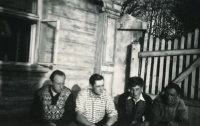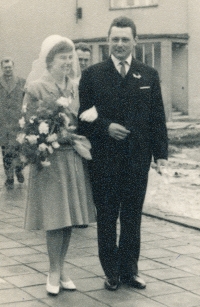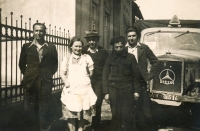The Communists took their farm and expelled them to the Sudetenland

Download image
A brick house with Art Nouveau decoration, a shed with a carriage, a barn for five horses, a barn full of cattle, two barns, a garden, thirty hectares of fields, an orchard and a forest. Three generations of František Šimon farmed the family farm in Veselá - the last one of them was born in Mladá Boleslav on September 26, 1933. He spent twenty years in Veselá u Mnichova Hradiště, when the village was still a functioning organism. After 1948, it was ruined by the communist-forced collectivization. The regime described the Šimon family as “kulaks”, it confiscated the agricultural machinery necessary for farming from them and imposed compulsory liquidation levies. After the comrades made them to join the Unified Agricultural Cooperative (JZD) - the other farmers refused to sign the application unless the largest of them signed it - they expelled them from the cooperative again. The Criminal Commission of the District National Committee convicted them of “non-fulfillers” of mandatory supplies. Their family farm was confiscated and in February 1953 they were moved to Heřmaničky near Česká Lípa without the possibility of returning. At the border, they worked for a local agricultural cooperative, and in 1956 they obtained permission to move to their mother’s relatives in Chleb u Nymburka. The parents did not live to see the end of the communist regime, their sons regained the farm after a difficult restitution process in 2000.
























